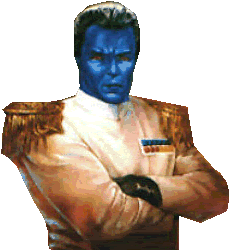Post by TheLuckyOne on Sept 24, 2004 10:30:59 GMT -5
Good morning, everyone. I thought, if anyone's interested, we might spend some time discussing and comparing two books: Stranger in a Strange Land, and Starship Troopers.
For those not in the know, the two are works of science fiction written in the general timeframe of the late 50s/early 60s. Stranger is what you might call a "hippie book." I'll confess that I haven't read it all the way through (yet), but I know the basic plotline and some background on it. Essentially, it begins with humans going to Mars and discovering a very peaceful, loving, laidback (read: stoned) alien civilization, and bringing a Martian child back to earth. The bulk of the novel deals with the now-grown boy adjusting to life on our planet and spreading the Martian message of free love, peace, and "grokking." Just as Kerouac's On The Road motivated a generation of middle-class college students to drop out and start hitchhiking across America to find themselves, Stranger was a big influence on 60s culture, held up as an example of what our culture should strive for by many a hippie.
Starship Troopers, on the other hand, is told from the perspective of an average young man who enlists in the "Mobile Infantry" in a future society where everyone lives free and peacefully, but anyone wishing to earn the right to vote and call themselves a citizen must complete a 2-year stint in the military. One of my favorite books of all time (never seen the movie, but I understand it's not anywhere near as deep or philosophical), it's often held up as an incredibly accurate portrayal of the life of a soldier in any army throughout history; in fact, it's required reading in some branches of the US military, and James Cameron made all of his actors read it before shooting "Aliens." The book intercuts Johnny's boot camp experiences with memories of a philosophy class he took in high school, with discussion often centering on the major factors that caused the breakup of the 20th century society (ours), leading to the establishment of theirs: in essence, that we became so concerned with our individual rights, we neglected our responsibilities. It's a very interesting stance and makes some quite persuasive arguments; on the other hand, the militaristic slant often causes it to be branded a fascist novel by the really left wingers.
The interesting aspect of all this, however, is that both of these novels were written by the same guy: Robert Heinlein. What you have is essentially the ultimate military novel and the ultimate hippie novel, and the same person wrote both of them. That amuses and fascinates me, and I thought it might make for an interesting discussion. So without further ado: has anyone read one or both of these books? What did you think? How do you reconcile the views of Stranger with the views of Starship? Can you reconcile them? Was Heinlein expressing his true perspective more in one than the other? I have my own thoughts, but let's hear yours. (Please?)
Or just make fun of how "grokking" sounds dirty. Whatever suits you best.
-D
For those not in the know, the two are works of science fiction written in the general timeframe of the late 50s/early 60s. Stranger is what you might call a "hippie book." I'll confess that I haven't read it all the way through (yet), but I know the basic plotline and some background on it. Essentially, it begins with humans going to Mars and discovering a very peaceful, loving, laidback (read: stoned) alien civilization, and bringing a Martian child back to earth. The bulk of the novel deals with the now-grown boy adjusting to life on our planet and spreading the Martian message of free love, peace, and "grokking." Just as Kerouac's On The Road motivated a generation of middle-class college students to drop out and start hitchhiking across America to find themselves, Stranger was a big influence on 60s culture, held up as an example of what our culture should strive for by many a hippie.
Starship Troopers, on the other hand, is told from the perspective of an average young man who enlists in the "Mobile Infantry" in a future society where everyone lives free and peacefully, but anyone wishing to earn the right to vote and call themselves a citizen must complete a 2-year stint in the military. One of my favorite books of all time (never seen the movie, but I understand it's not anywhere near as deep or philosophical), it's often held up as an incredibly accurate portrayal of the life of a soldier in any army throughout history; in fact, it's required reading in some branches of the US military, and James Cameron made all of his actors read it before shooting "Aliens." The book intercuts Johnny's boot camp experiences with memories of a philosophy class he took in high school, with discussion often centering on the major factors that caused the breakup of the 20th century society (ours), leading to the establishment of theirs: in essence, that we became so concerned with our individual rights, we neglected our responsibilities. It's a very interesting stance and makes some quite persuasive arguments; on the other hand, the militaristic slant often causes it to be branded a fascist novel by the really left wingers.
The interesting aspect of all this, however, is that both of these novels were written by the same guy: Robert Heinlein. What you have is essentially the ultimate military novel and the ultimate hippie novel, and the same person wrote both of them. That amuses and fascinates me, and I thought it might make for an interesting discussion. So without further ado: has anyone read one or both of these books? What did you think? How do you reconcile the views of Stranger with the views of Starship? Can you reconcile them? Was Heinlein expressing his true perspective more in one than the other? I have my own thoughts, but let's hear yours. (Please?)
Or just make fun of how "grokking" sounds dirty. Whatever suits you best.
-D






 Oh, I kid. I kid because you currently can't reach me.
Oh, I kid. I kid because you currently can't reach me.




 I knew he had written another book, Vampire$, I just never bothered to look closely at the storyline. The title made me think it wasn't related to Armor in any way.
I knew he had written another book, Vampire$, I just never bothered to look closely at the storyline. The title made me think it wasn't related to Armor in any way. 